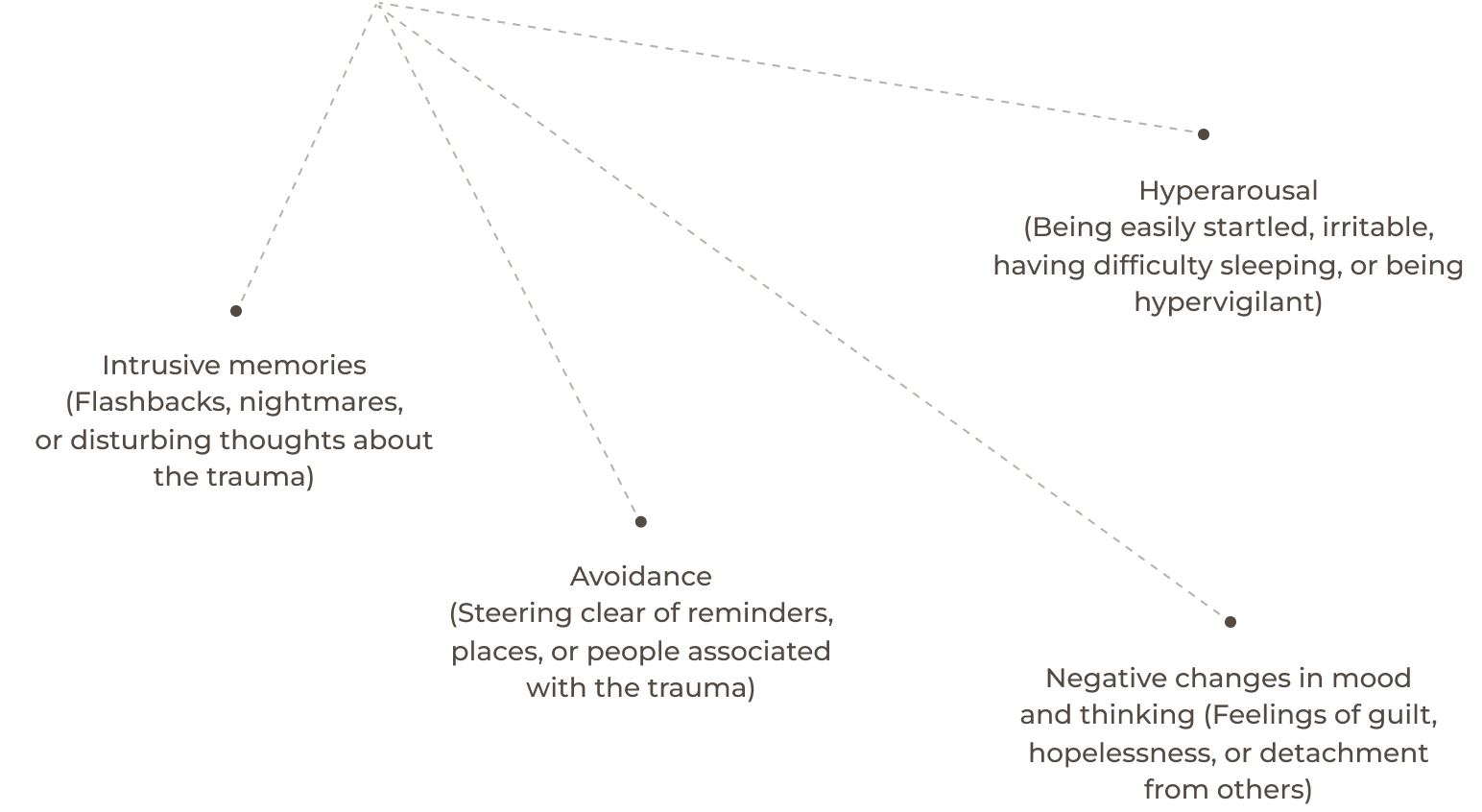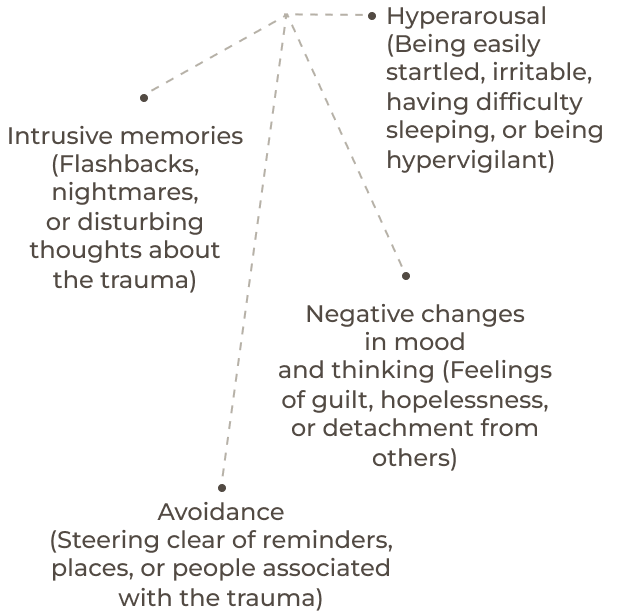PTSD

Post-Traumatic Stress Disorder (PTSD) is a mental health condition triggered by experiencing or witnessing a traumatic event, such as violence, natural disasters, physical or sexual assault, accidents, or combat. It involves intense, disturbing thoughts and feelings related to the event long after the trauma has ended.
PTSD can significantly interfere with a person’s ability to function in daily life. Relationships may suffer due to withdrawal, irritability, or emotional disconnect. Work performance can be impacted by difficulty concentrating or managing stress. The condition can also lead to co-occurring mental health issues, such as anxiety and depression.
Effective treatment for PTSD often includes a combination of therapy and medication, including Cognitive-Behavioral Therapy (CBT) and Eye Movement Desensitization and Reprocessing (EMDR).

Symptoms of PTSD



How We Can Help with PTSD

An initial psychiatric evaluation is a crucial service for individuals experiencing post-traumatic stress disorder (PTSD). During this comprehensive assessment, we gather detailed information about the individual’s trauma history, symptoms, and overall mental health. This evaluation aims for an accurate diagnosis of PTSD and differentiation from other mental health conditions. By establishing a thorough understanding of the individual’s experiences and challenges, we can recommend appropriate therapies, medications, and coping strategies. This foundational step helps create an effective treatment roadmap and provides the individual with a supportive environment to begin the journey toward healing and recovery.
Medication management is an essential service for individuals with post-traumatic stress disorder (PTSD) and plays a crucial role in alleviating symptoms and improving overall functioning. We prescribe medications such as antidepressants, anti-anxiety medications, or other psychotropic drugs tailored to the patient’s specific needs. Effective medication management can significantly reduce the impact of PTSD symptoms, enhance emotional stability, and promote a better quality of life for those affected.
During therapy sessions, we help PTSD patients explore their thoughts, feelings, and reactions related to the trauma. This therapeutic approach enables individuals to develop coping strategies, improve emotional regulation, and address negative beliefs associated with the trauma. Techniques such as cognitive-behavioral therapy (CBT) and exposure therapy are commonly used to help patients confront and reframe their experiences, ultimately leading to reduced symptoms and improved functioning. By fostering self-awareness and resilience, individual psychotherapy empowers individuals to navigate their recovery journey and enhance their overall quality of life.
Laboratory monitoring involves regular assessments that evaluate the effectiveness of prescribed medications and track any potential side effects to ensure that the treatment plan remains safe and effective. This proactive approach allows us to make timely adjustments to medication as needed. Psychotropic genetic testing analyzes a patient’s genetic profile to predict how they may respond to specific medications. By identifying genetic factors that influence drug metabolism, this testing helps tailor medication choices to each patient and reduce the risk of adverse effects and increasing the likelihood of treatment success. Together, these services promote a more personalized approach to managing PTSD and improve overall patient outcomes and quality of life.
Let’s Connect!

